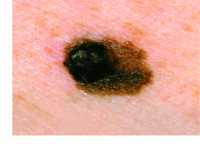Author Interviews, Dermatology, Environmental Risks, General Medicine, JAMA, Melanoma, Stanford / 07.10.2019
Indoor Tanning More Available in Neighborhoods with More Gay Men
MedicalResearch.com Interview with:
Eleni Linos MD MPH DrPH
Professor of Dermatology and Epidemiology
Stanford University
MedicalResearch.com: What is the background for this study? What are the main findings?
Response: We know that tanning beds are harmful: people who use tanning beds are more likely to get skin cancer. Sexual minority men are much more likely to use tanning beds and also more likely to get skin cancer. In a separate study we discovered that one reason sexual minority men use tanning beds is if it is convenient: e.g. if close to home, cheap, and easy. (https://onlinelibrary.wiley.com/doi/abs/10.1111/bjd.17684). Recent research showed that tobacco retailers cluster in LGB neighborhoods: https://sph.unc.edu/sph-news/more-tobacco-retailers-in-lgbt-neighborhoods-may-explain-smoking-disparities/. This made us wonder if tanning salons also cluster in neighborhoods with more gay men. (more…)





























